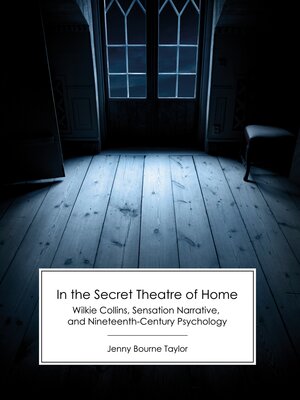In the Secret Theatre of Home
ebook ∣ Wilkie Collins, Sensation Narrative, and Nineteenth-Century Psychology
By Jenny Bourne Taylor

Sign up to save your library
With an OverDrive account, you can save your favorite libraries for at-a-glance information about availability. Find out more about OverDrive accounts.
Find this title in Libby, the library reading app by OverDrive.



Search for a digital library with this title
Title found at these libraries:
| Library Name | Distance |
|---|---|
| Loading... |
In his 1852 novel Basil, Wilkie Collins' narrator concludes that "those ghastly heart-tragedies laid open before me ... are not to be written, but ... are acted and reacted, scene by scene, year by year, in the secret theatre of home." Taking this memorable quote as her starting point, Jenny Bourne Taylor demonstrates how Victorian psychology is central to an understanding of the complexity and vitality of Collins' fiction, exploring the boundaries of mind/body, sanity/madness, and consciousness/unconsciousness.
Taylor's depth of research and thoughtful analysis establishes the importance of Collins as a writer whose fiction challenges the cultural constructions of the nineteenth century, and proves "the impossibility of drawing a precise boundary between fictional and psychological codes". Going beyond conventional discussion of the sensation genre, here we see the depth and range of Collins' writing and gain an understanding of its relation to Victorian medical thought.
The study includes close readings of five novels: Basil (1852), The Woman in White (1859-60), No Name (1862-3), Armadale (1864-66), and The Moonstone (1868). Consideration is also given to Man and Wife (1870), The New Magdalen (1872), The Law and the Lady (1875), Jezebel's Daughter (1879), Heart and Science (1882-3), The Fallen Leaves (1879), and The Legacy of Cain (1889)







